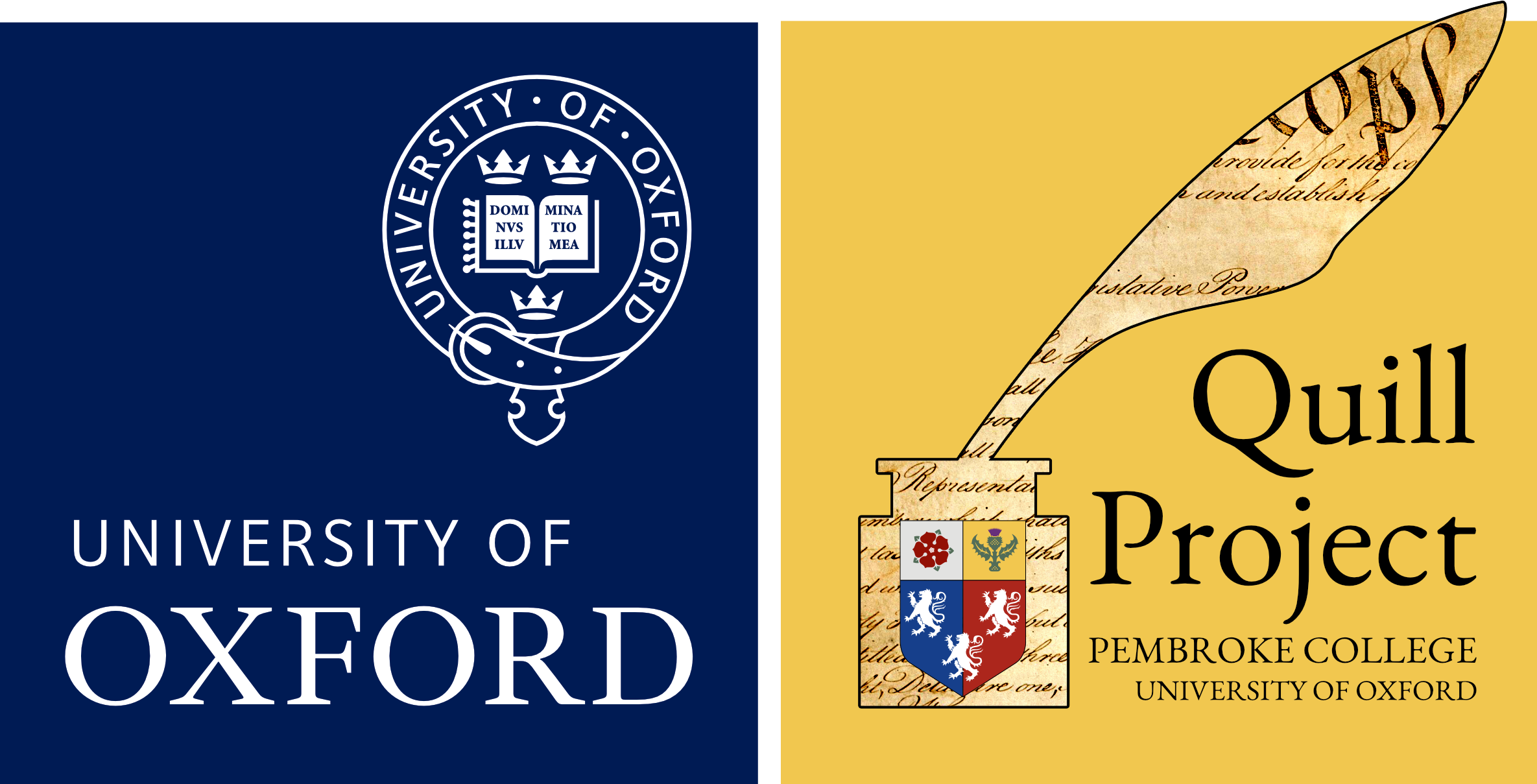About Quill
Understanding formal negotiations
Laptop displaying the US Constitution, overlaid with Quill icons.
Based on a study of three hundred years of parliamentary manuals and an adaptation of algorithms developed to support multi-user text editing, Nicholas Cole and his team have developed a digital platform that can—where the necessary records exist—reconstruct the paperwork available to participants at each stage of the negotiations, allowing proposals made and votes taken to be understood more easily within their contexts. The project continues to refine this technology and to create bespoke visualizations, data-mining, search, and comparison tools that enable these processes to be better analyzed, understood, and presented.
A Multidisciplinary Research Agenda
Quill’s research agenda comprises a number of different historical, legal, and technical challenges:
How can historical documents be made more accessible to researchers and the wider public?
How can the complex process of legislative drafting be better understood, analysed, and (therefore) influenced?
How do we model the context within which proposals are made and decisions taken during a formal negotiation in order to further both research and education?
How can commentary upon particular moments of a negotiation be better written?
A Distinctive Approach
The Quill Project brings a distinctive approach to these questions:
Although it involves digitization and editing, it focuses upon developing tools for analysis and comparison rather than collection-building as its final product.
It conducts research into how to represent the work of legislative bodies in ways that can be manipulated digitally, especially to allow the reconstruction of the information available to participants at any given moment in a debate.
It conducts and oversees archival research and edits the records of particular legislative-style processes for the purpose of supporting research into the history of specific documents and more generally the evolution of the process of formal negotiation across time and space.
It conducts research into the application of natural language processing and data visualization necessary to assist both researchers and other users.
It researches ways to represent and annotate evolving documents stored in a range of formats.
It develops innovative user-interfaces to assist with accurate documentary editing even when the teams working on a given project are globally dispersed.

